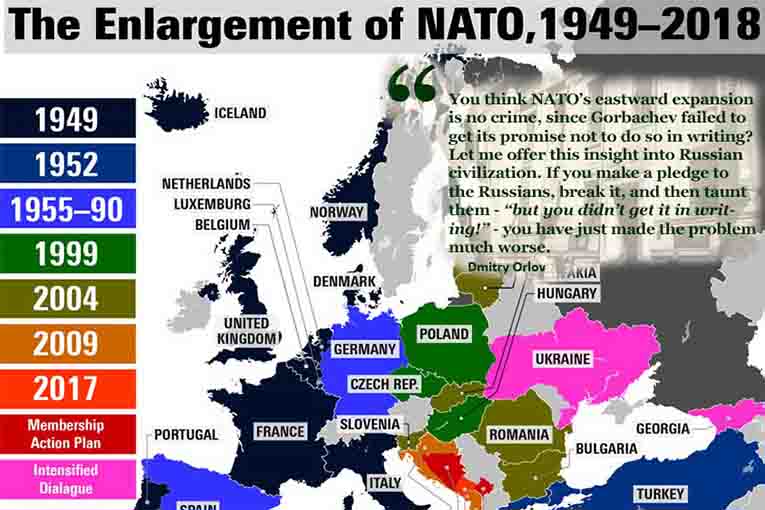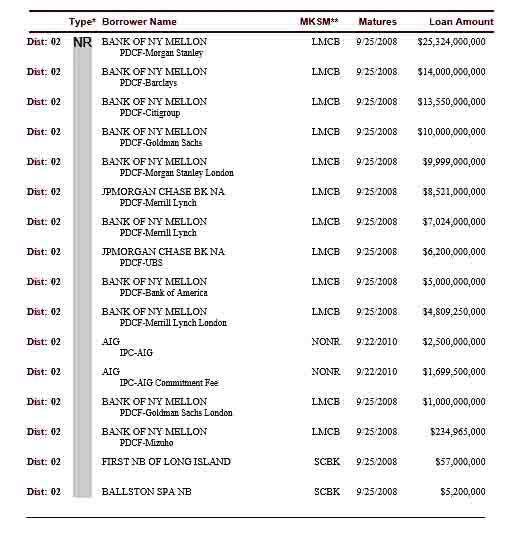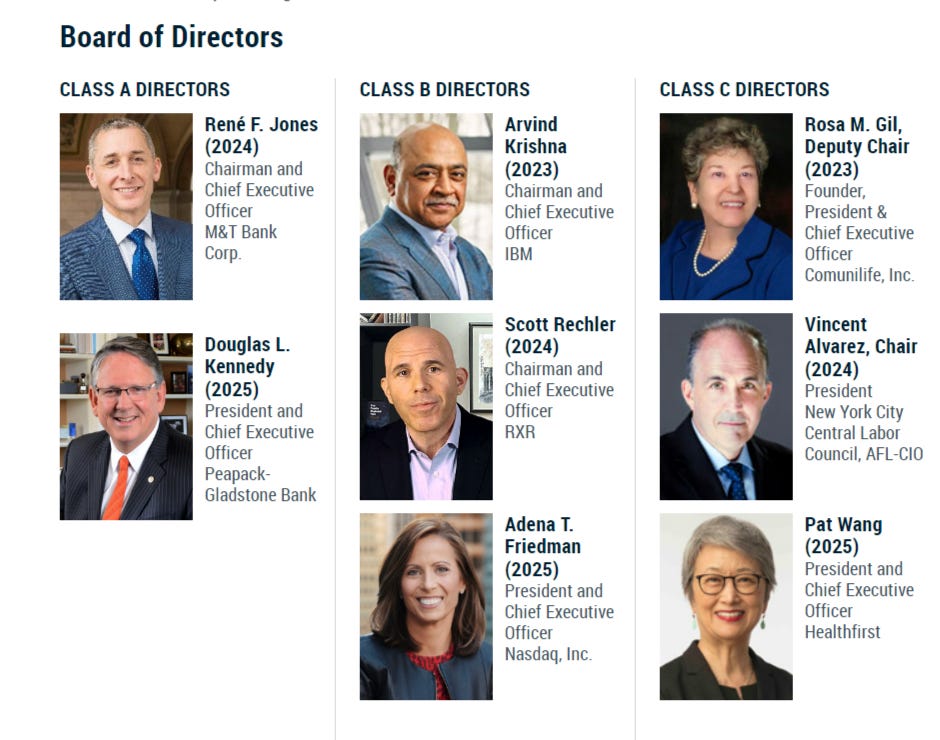For some time I’ve been hammering away at the point that China’s capitalists are subordinate to the state, while in the West the reverse applies. My aim is not to counter mainstream media propaganda, predictably immense and ceaseless; upmarket no less than down, financial no less than general. I do that too – it’s a big part of my job – but as a separate project
Rather, I make this point to counter far left currents which say China, being capitalist, is “just as bad” as the West. Indeed, in a flurry of recent posts, Canadian socialist Stephen Gowans – with whom I disagree over Ukraine while applauding his work on Israel and empire – makes that very argument. My reply is the one I gave two years ago in an open letter on the subject:
China’s capitalists (a) have been an important component in a miracle that’s lifted hundreds of millions from what the World Bank calls extreme poverty, (b) are subordinate to state policy – when in the West it’s the other way round – and (c) exist precisely because the failure of the West’s Left to make its own revolutions obliged China to adapt to global conditions of entrenched neoliberalism.
I’ve yet to hear any of my three points rebutted by far left Sinophobes. As for corporate media – The Economist, WSJ, Business Insider and the like in particular – they tacitly endorse point (b) through their attacks on Beijing “meddling” in the sanctity and sovereignty of “free enterprise”.
(This has seen those organs descend into some two decades of wolf crying self parody as they issue warning after doomsaying warning of China’s “imminent” economic stagnation. I confess though that my approval of Beijing on this point is tempered by fear that, by its inherent nature, capitalism may in the end prove no more controllable in China than in 19th century Europe. If I could see another horse in the race – socialism or barbarism – I might hedge my bets, but other horse see I not. All those far left critics offer are either armchair platitudes mixed with IdPol incoherence, or a call for the workers of the world to unite, rise up and throw off their chains. Worthy cause, but I’m not holding my breath. Nor are they.)
What of Russia though? I’ve spoken of Kremlin dirigisme in the context of its arms sectors. See in this respect the exchanges below my post, Broken… In non adversarial dialogue with Jams O’Donnell – possibly not his real name – I spoke of:
… the deeper malaise of finance capital having hijacked government in the West. Russia has superiority in SAMS and hypersonic missiles because her arms sectors, while largely private, are regulated by a dirigiste government. This reflects the wider truth that post Yeltsin Russia, and more decisively China under the CCP, puts capitalism at the service of the state. In the west it’s the other way round.
(Joseph Heller’s depiction of Milo Minderbinder in Catch-22 was prescient. The primary concern of Boeing, Raytheon, Lockheed-Martin etc is not to deliver effective deterrence but the best returns to shareholders.)
A key delusion of Western leaders was a wildly overstated emphasis on GDP as an accurate measure of a nation’s prosperity and economic clout.
It may be argued that weapons production in a state under siege …

… is too narrowly specific to be useful in broader characterisations of Russia’s capitalism vis a vis the West’s. But a post today by Russian pundit Simplicius the Thinker – Exploring the Truth of Russia’s Central Bank – offers a parallel contrast with the US Federal Reserve.
It opens with this:
Recently I’ve gotten a lot of requests to discuss Russia’s new digital Ruble, signed into law by Putin on July 24. It’s been oft-included in the blanket scary ‘CBDC’ category under the narrative that Putin is some sort of WEF stooge secretly helping to roll out the ‘Great Reset’ agenda.
I’ll skip a whole chunk on Klaus Schwab, The Great Reset and those whom Simplicius regards as libertarian conspiracy freaks; analogous to but distinct from ultra-leftists of the type who damn China and Russia on grounds sketched out above. Instead I’ll go to the heart of his argument on the very different roles, structuring and ownership of the two countries’ central banks.
NB, as is his wont, Simplicius takes his time but, as also is his wont, that’s due to thoroughness not verbosity. Still, for those of you with a busy day ahead, here’s his argument in a nutshell:
America’s central bank is owned by the crooks who own everything else in that fake democracy. Russia’s, while far from perfect, is not.
Here, for those with more time at their disposal, is the longer version …
Many have previously accused the head of Russia’s central bank Elvira Nabiullina of being a globalist plant. The problem is, Russia’s central bank does not work like the not-so-Federal Reserve, and does not leave much room for the same type of syndicate co-option by private interests which is rampant in the Western system.
How the Federal Reserve of the United States works is that the main top-level Fed central bank in DC is comprised of a group of 12 regional member banks, like the NY Fed, Boston Fed, St. Louis Fed, etc. At this level, the system still appears ‘federal’ rather than private. But each of these member banks is actually comprised of, or rather owned by, the private member banks like JP Morgan, Citigroup, Bank of America, et al, who have purchased stock in them, and are tasked with appointing their Board of Directors. To clarify, the Board of Directors in each of the 12 regional Federal Reserve banks is elected by the private banking powerhouses like JP Morgan and co. In fact, here’s a list of the top shareholders of the NY Fed as a sample:
The largest shareowners of the New York Fed are the following five Wall Street banks: JPMorgan Chase, Citigroup, Goldman Sachs, Morgan Stanley, and Bank of New York Mellon. Those five banks represent two-thirds of the eight Global Systemically Important Banks (G-SIBs) in the United States. The other three G-SIBs are Bank of America, a shareowner in the Richmond Fed; Wells Fargo, a shareowner of the San Francisco Fed; and State Street, a shareowner in the Boston Fed.
So these private banking powerhouses in fact own the Federal Reserve bank and even appoint its directors, and make profit via dividends on the shares they hold in the Fed bank. This creates massive conflicts of interest. For instance, during the 2008 crash, the NY Fed naturally bailed out its largest shareholders despite huge amounts of fraud and malfeasance from those private mega-banks. NY Fed’s disbursements to the banks which own it:

Secondly, on an individual level, there are endless conflicts of interest for the actual board members of the Fed banks. The most high profile case was that of Jamie Dimon who was the CEO of JP Morgan Chase at the same time as serving on the Board of Directors of the NY Federal Reserve bank. But this is actually normal, as directors are chosen literally from the field of CEOs and other big wigs at major corporations. For instance, here’s the board of directors from the NY Fed’s own website:

Note how every member of the board for the NY Federal Reserve is a CEO of another major corporation (IBM, etc.) or major financial institution or bank. The president of each of the 12 Fed banks makes up the FOMC committee of the Fed central bank in DC, which is one of the chief organs of the Federal Reserve System which oversees market operations. That means this arm of the Federal Reserve is directly run by the CEOs of major corporations, banks, etc., acting as parallel ‘board of directors’ to the central Fed’s own ‘Board of Governors’ headed by the Fed Chairman.
Another example is how in 2008, Stephen Friedman was a chairman of the NY Fed and sat on the Board of Directors of Goldman Sachs. Not surprisingly, he was able to get Goldman Sachs a ‘bank holding company’ title (they were previously just a hedgefund and not allowed to operate as a bank) which allowed them to greedily siphon cheap Fed loans. There are many other examples, particularly older ones can be found in such places as Eustace Mullins’ works on the Federal Reserve system.
Russia’s central bank system doesn’t function in this way. In fact, the Russian central bank is not comprised of any member ‘branches’ and has no type of private or corporate ownership in the way of the U.S. Fed. It simply has offices of the main central headquarters in different parts of Russia, but these are just administrative offices and nothing more. Further, because of this much simplified structure, the bank is administered primarily by a far more transparent board of directors which are appointed by the Russian president and State Duma. And most importantly, those directors are not involved in the same conflicts of interest as are possible and rampant in the U.S.—i.e. sitting on boards of other major globalist conglomerates and private commercial banks.
In fact, in Russia the banking situation can almost be said to be backwards to that of the U.S. in the following way. In the U.S., the largest private banks control the government and its monetary policy by way of their direct control over the Federal Reserve itself. In Russia, the largest banks in the country, like Sberbank, VTB, etc., are actually majority-state owned. Which means the Russian government has the controlling share and say in them.
With that said, Sberbank is headed by one of the few people at the top of the Russian food chain that we can unequivocally say is a full-blooded globalist, or mostly so: one Herman Gref, the ethnically German and seeming WEF stooge. He has served on the WEF board of trustees before, though he’s apparently not on it in the post-Covid era, and has been behind attempts to usher in a lot of WEF-initiated-and-designed societal ‘changes’ into Russia.
Hence, Russia isn’t perfect, and has some bad seeds actively working in its financial industry—but like I said, that’s the half-private Sberbank, not the Bank of Russia, which is Russia’s central bank. My point is not to exonerate those, but to simply point out the other major differences which makes Russia very unlike the West.
In fact, what’s startling for people used to the cronyism of the West, is that if you click through each member of the Bank of Russia’s board of directors, you’ll note that all, save one, are career state bankers, economists, or some type of career state employees. Meaning they’ve worked in various positions in the Bank of Russia or other state institutions for the majority of their careers rather than in private hedgefunds, investment firms, corporations, and the like, as is so common in the U.S. Federal Reserve system.
There’s simply nothing of this sort in the Russian system.
Food for thought, no?
* * *

My thinking is that Russia should (perhaps it already does in some ways) adopt an economic framework more like Chinas. After all, there is absolutely no doubt that China has had the most successful (and communist) revolution in the whole of history. (See massive selection of statistics at:
https://herecomeschina.substack.com )
Putin has said that he is not now a communist, but the relentless sanctions from the west, and his own nullifying of the oligarchs may give him the freedom and impetus to reconsider this. It would also have the advantage of bringing Russia closer to China, Cuba and Vietnam and others, while distancing Russia from the capitalist and imperialist west in the eyes of Africa, Asia and South America. I have to face it though, Vladimir doesn’t pay much attention to anything I say 🙂
You do yourself down, Jams. Just the other night, Vladimir was telling me over a vodka or three how much he welcomes your advice. He calls you his “Irish consiglieri”.
I’ve followed Putin’s Russia since he was made #1 and the years prior as well. Putin’s political-economy I’ve called People Centered Development for he recognizes that a strong state requires strong people, and nowadays, educated and highly skilled people, and Russia’s fundamental policies are all geared to make that reality. Far more could be said, of course, and I have. A friend at MoA advised me of your blog. I’ll be back!
Nice to see you here karlof1 – I’ve read lots of your comments on MoA
A warm welcome to you, karlof1. Moon of A readers are always welcome here. I look forward to hearing from you again.
In the interests of balance , Edward Slavsquat has this:
“…just have a gander at what the Public Commissioner for Family Protection published in January of this year:
“On December 29, under the cover of a new year, a group of deputies and senators submitted to the State Duma a bill on the introduction of a digital ruble. In fact, this is a project of our Central Bank, which is not subordinate to the Government of the Russian Federation (Yale University graduate Nabiullina and her deputy, a graduate of the University of California, Skorobogatova).
“In the bill’s explanatory note, the authors admit that during the preparation of the draft law, “foreign experience in creating and regulating the currencies of central banks was analyzed … projects of foreign countries aimed at the introduction of digital currencies of central banks (CBDC) were studied, in terms of issues related to their regulation. The general conceptual approaches developed by foreign policymakers were, to a certain extent, taken into account when creating the concept of the digital ruble.”
“In other words, a globalist project to introduce standardized “digital money” worldwide has been initiated on Russian soil.
“The project is managed by the central banks of all countries of the world —as part of the supranational structure of the Washington Consensus, in full accordance with the plans of the main shareholders of the Fed, as well as the controllers of the IMF and the World Bank (head offices are in the USA).
“Yeah, but an anonymous guy on the internet told me that the Bank of Russia wasn’t that bad, and I am satisfied with this…”
https://edwardslavsquat.substack.com/p/elvira-nabiullina-is-the-kindest?utm_source=substack&utm_medium=email
Thanks bevin. It’s a minefield. While I appreciate the clarity, detail and general thrust of Simplicius, I can’t fully endorse him – or for that matter others I loosely place in the same neck of the woods, like the Saker. It’s not that I find him wrong (or right) but that I lack sufficient knowledge to make a confident assessment.
On the other hand, nothing about Edward Slavsquat endears me to him or his line of thinking. He strikes me, on admittedly brief acquaintance, as typifying the clever-dick armchairism I’ve had a belly full of from others who strike me as uninterested in real change.
Am I missing something good here?
Meanwhile, and to give Simplicius his due, Slavsquat does ignore the caveats given in the piece I offered, caveats repeated in my one sentence summary. More importantly, what my extract flags up is less the digital currency issue – and less still the nature of Elvira Nabiullina – than the structuring and constitutional make up of Russia’s central bank vis a vis the Fed. As such it chimes with the direction Russia appears to be taking after the years of disaster capitalism under Yeltsin. Those years of scorched earthery will take decades to repair and as you know – but our lovely politicians and media either don’t or won’t admit to – Mr Putin holds considerable power but, equally, still has to negotiate at every turn with powerful forces. He did not walk into the Kremlin with a blank cheque and free hand.
At root here, the comparison I am pointing to is between capitalism in a powerful state, and capitalism which owns the state lock, stock and barrel. As such, I am continuing the direction Michael Hudson has sketched out with his work on China.
PS – meanwhile Stephen Gowans, a Marxist who makes no distinction that matters between China’s or Russia’s capitalism and that of the West, and insists all are imperialist, appears to have picked up on one aspect of my challenge, as set out in paragraphs three and four of my intro to Simplicius, to “far left Sinophobes”.
See his August 10 piece, Scab of the world, appearing within hours of mine. The ‘scab’ in question is China. Several times he speaks scornfully – without naming me, to be sure, but the coincidence is strong – of those “hundreds of millions lifted from extreme poverty”. Steve is unimpressed. Since they are all Chinese, he says, this is simply the result of Beijing subservience to the US led West. The logical and humanitarian – and, yes, Marxist – incoherence of such a claim is staggering. Too much for me to dissect here, save to say that Steve is capable of first rate thinking when he chooses. Yet he offers neither evidence nor reason for supposing China’s use of capitalism simply meant – since scabs take bread from the mouths of others and their children – that an equal number of non Chinese had to stay in extreme poverty for that feat to be accomplished! Who, and where are they? Has he the stats to show that the hundreds of millions (now a billion, since the World Bank data I use goes back several years) lifted from extreme poverty were at cost of an equal number in the global south outside China falling into the same?
If that isn’t his argument, why such indifference to what has been accomplished?